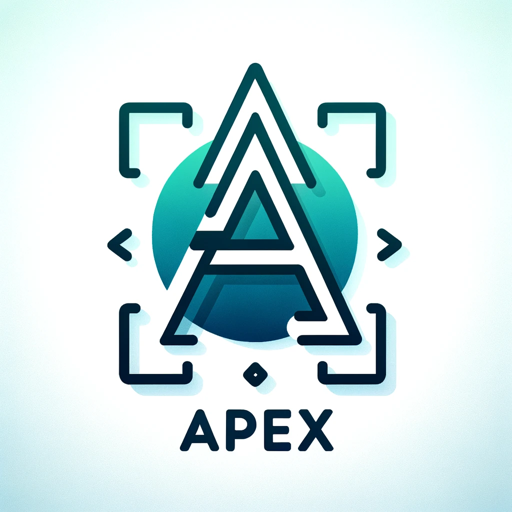Data Engineer Consultant-AI-powered data engineering solutions.
AI-driven insights for data engineering excellence.
Guides in data engineering tasks with a focus on practical solutions.
Can you help me design a data pipeline that handles specific data volumes and latency requirements?
What are best practices for automating data pipeline tasks?
Can you assist in designing a scalable, maintainable data model for specific business requirements?
What data quality checks can I implement to identify and correct errors?
What are some techniques for normalizing data to reduce redundancy and improve data quality?
What are some data modeling best practices that I should follow?
What are some data quality checks that I can implement to identify and correct data errors?
What are some data quality metrics that I should track to monitor the overall health of the data?
What are some data quality improvement processes that I can implement to ensure the data is of high quality?
What are some data governance policies that I should implement to ensure data security and compliance?
What are some data access controls that I can implement to restrict access to sensitive data?
How can I track data usage to ensure data is being used appropriately?
Related Tools

AWS Cloud Architect & developer
Expert in AWS Cloud

Business Consultant
Strategic business consultant

SAP Expert
Dedicated SAP consultant, focused on continuous learning.

Software Engineer
Expert Software Engineer in Java, AWS, JavaScript, Python, React. Offers quality code and problem-solving strategies.

Pyspark Data Engineer
Technical Data Engineer for PySpark , Databricks and Python

Data Analyst
Master Data Analyst GPT: Excel in SQL, Python, R, data visualization (Tableau, Power BI), and data management. Proficient in statistics, ML, AI. Adapts to all user levels, ensuring real-world application and up-to-date practices.
20.0 / 5 (200 votes)
Introduction to Data Engineer Consultant
The Data Engineer Consultant is a specialized AI designed to assist professionals and teams working in the data engineering field. Its primary function is to provide guidance and support in designing, building, and maintaining data pipelines, as well as offering advice on data governance, data quality management, and data model optimization. Unlike generic assistants, the Data Engineer Consultant offers deep, practical insights into specific areas such as automation, scalability, and compliance in data systems, helping teams overcome common challenges such as ensuring data accuracy, handling large datasets, or maintaining security and compliance standards. For example, in a scenario where a team is struggling to optimize a data pipeline for real-time analytics, the Data Engineer Consultant can suggest specific tools, techniques, and design principles to ensure the pipeline is both scalable and efficient. Another example could involve recommending data governance policies for a company managing sensitive healthcare data, where it would advise on encryption standards, access control, and compliance with regulations like HIPAA.

Main Functions of Data Engineer Consultant
Pipeline Design and Development
Example
A retail company needs to integrate data from multiple sources, including their CRM, sales databases, and external marketing platforms, to get a unified view of customer behavior.
Scenario
In this case, the Data Engineer Consultant helps the team design an ETL pipeline that consolidates the data from these disparate sources into a centralized data warehouse. It offers advice on scheduling the data loads, handling schema changes, and optimizing the process for performance.
Data Quality Management
Example
A financial services firm is experiencing discrepancies in their monthly reports due to inconsistent data entry across multiple branches.
Scenario
The Data Engineer Consultant can guide the team on implementing data quality checks such as validation rules, error detection mechanisms, and automated anomaly detection. It could recommend tools like Great Expectations or custom data profiling scripts to ensure data consistency and reliability.
Data Governance and Compliance
Example
A healthcare provider needs to ensure that its data handling complies with GDPR while also protecting sensitive patient information.
Scenario
In this scenario, the Data Engineer Consultant offers recommendations on data access control, audit logging, and encryption strategies. It also advises on anonymization techniques for sensitive data and how to set up governance frameworks to ensure long-term compliance with evolving regulations.
Ideal Users of Data Engineer Consultant Services
Data Engineering Teams
Teams responsible for building and maintaining the data infrastructure of an organization, including data pipelines, data lakes, and warehouses. These teams benefit from the consultant's expertise in pipeline optimization, data quality enforcement, and scalability solutions. Whether they are working in a startup needing to scale quickly or a large enterprise dealing with complex data ecosystems, these teams use the consultant to accelerate development and reduce operational bottlenecks.
Data Governance and Compliance Officers
Professionals responsible for ensuring that their organization’s data practices are secure, compliant, and ethical. They benefit from the consultant’s insights into implementing robust data governance policies, enforcing compliance with legal standards like GDPR and CCPA, and ensuring data security best practices are followed. The consultant helps them design frameworks that minimize risks and maintain the integrity of sensitive data.

Guidelines for Using Data Engineer Consultant
Visit aichatonline.org for a free trial without login, also no need for ChatGPT Plus.
Start by navigating to the website where you can access the Data Engineer Consultant. No registration or paid subscription is required to begin using the tool.
Define your data engineering goals.
Determine the specific objectives you want to achieve, such as pipeline development, data modeling, or governance. Clear goals will help you get the most relevant advice and solutions.
Interact with the tool to receive customized guidance.
Pose questions or describe scenarios, and the Data Engineer Consultant will provide tailored, in-depth responses to help you with your project. Utilize the tool's advanced understanding to receive technical recommendations and best practices.
Implement the advice and track progress.
Apply the provided recommendations to your data engineering tasks, such as setting up pipelines or enhancing data quality. Continuously track your progress and return to the tool for further advice as needed.
Use the feedback loop for iterative improvement.
Revisit the tool to fine-tune your strategies based on real-world results. The consultant can help you optimize and refine your processes, ensuring ongoing success in your data engineering projects.
Try other advanced and practical GPTs
Finance Consultant
Smart AI Insights for Finance Data

Personal and mental coach
Your AI-powered partner for growth and mental clarity.

Interactive writer
AI-Powered Writing, Tailored for You

SEO Expert
AI-driven insights to boost your SEO
3D Illustrations Creator by Mojju
AI-Powered 3D Illustrations, Made Simple
Humanizer
AI-powered text transformation for all levels
Oracle APEX GPT Assistant
AI-Powered Guidance for Oracle APEX Development

Maths GPT
AI-driven insights for advanced mathematics.

Remove image background 去除图片背景(自动抠图)
AI-driven tool for seamless background removal

ロTiktokロ Script Generator
AI-powered TikTok script generator.

のYouTube to のTikTok Video Script Copilot
AI-Powered Scripts for Viral TikToks
TradeGPT - Real-time Stock Analysis & Prediction
AI-Powered Real-time Stock Analysis & Predictions

- Data Modeling
- Scalability
- Pipeline Design
- Quality Control
- Governance Setup
Key Questions & Answers About Data Engineer Consultant
What is the primary function of the Data Engineer Consultant?
The Data Engineer Consultant provides expert guidance on various aspects of data engineering, including pipeline development, data modeling, quality management, and governance. It offers practical advice, best practices, and technical solutions tailored to your specific project needs.
Who can benefit from using the Data Engineer Consultant?
Data engineers, data scientists, developers, and IT professionals involved in data management can benefit from this tool. It’s also useful for teams looking to improve their data processes, implement scalable data solutions, or maintain data governance standards.
How does the Data Engineer Consultant ensure data quality?
The tool provides strategies for implementing data quality checks, monitoring data accuracy, and establishing metrics to track performance. It guides users on how to set up automated quality controls and maintain high standards across data pipelines.
Can the Data Engineer Consultant assist with data governance?
Yes, the consultant offers advice on data governance best practices, including setting up access controls, ensuring compliance with data regulations, and monitoring data usage. It helps users create robust governance frameworks to protect and manage their data assets.
What are some common use cases for the Data Engineer Consultant?
Common use cases include designing data pipelines, optimizing data models, ensuring data quality, implementing data governance policies, and scaling data solutions to handle large volumes of information. The tool is versatile and adapts to various project requirements.